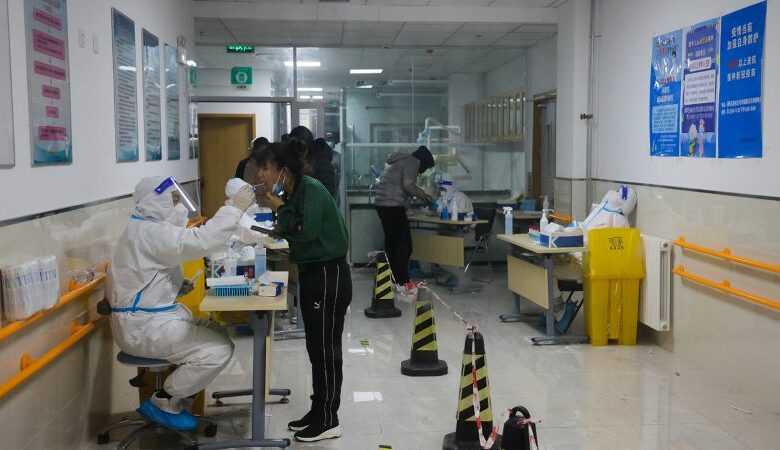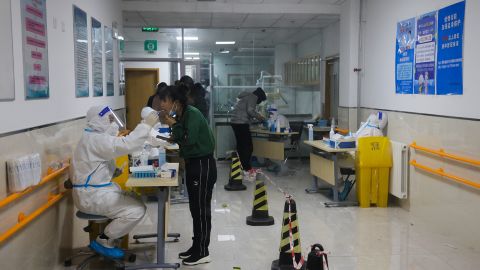
On Monday, China’s National Health Commission reported two deaths of Covid-19 patients in Beijing for Sunday, following the death of an 87-year-old man in the capital on Saturday.
It comes as the country faces a surge of cases, with 26,824 new infections reported on Sunday, according to the National Health Commission – the highest daily number since mid-April and the sixth consecutive day over 20,000.
Before this weekend, China’s most recent Covid-19 related death was on May 26 in Shanghai, which was locked down for two months until June over a major outbreak.
China is the world’s last major economy still enforcing strict zero-Covid measures, which aim to stamp out chains of transmission through border restrictions, mass testing, extensive quarantines, and snap lockdowns on neighborhoods or entire cities – sometimes for months on end.
Earlier this month, the Chinese government announced limited easing of its zero-Covid policy, discouraging unnecessary mass testing and overly zealous classification of restricted “high risk” areas. It also scrapped quarantine requirements for secondary close contacts and reduced the time close contacts and international arrivals must spend in quarantine.
Following the announcement, several Chinese cities canceled mass Covid tests, but the stringent restrictions imposed by local authorities to contain outbreaks remain in place.
In the southern metropolis of Guangzhou, authorities on Monday imposed a five-day lockdown on Baiyun, the city’s most populous district with 3.7 million residents and home to one of the country’s busiest international airports.
The city is the epicenter of China’s ongoing outbreak, having reported tens of thousands of cases and locked down several districts this month. Last week, some residents revolted against an extended lockdown, tearing down barriers and marching down streets.

In Beijing, schools across several districts moved to online classes on Monday, as authorities reported 962 infections for Sunday, up from 621 from a day earlier. In Chaoyang, the hardest-hit district and home to many international businesses and embassies, the district government urged residents to stay home over the weekend, with numerous restaurants, gyms, beauty salons and other facilities closed.
The rising case numbers and accompanying controls have pushed more residents across China to question the costs of zero-Covid measures.
For citizens who are trapped in lockdown, recurring issues like accessing prompt medical care or enough food and supplies, or losing work and income – have over and over again led to hardship and tragedy, including numerous deaths believed to be linked to delayed access to medical care.
In the central city of Zhengzhou, the death of a 4-month-old girl in hotel quarantine stoked nationwide outcry last week – the second death of a child under Covid restrictions this month.
CNN’s Beijing Bureau, Simone McCarthy and Kathleen Magramo contributed to this report.




